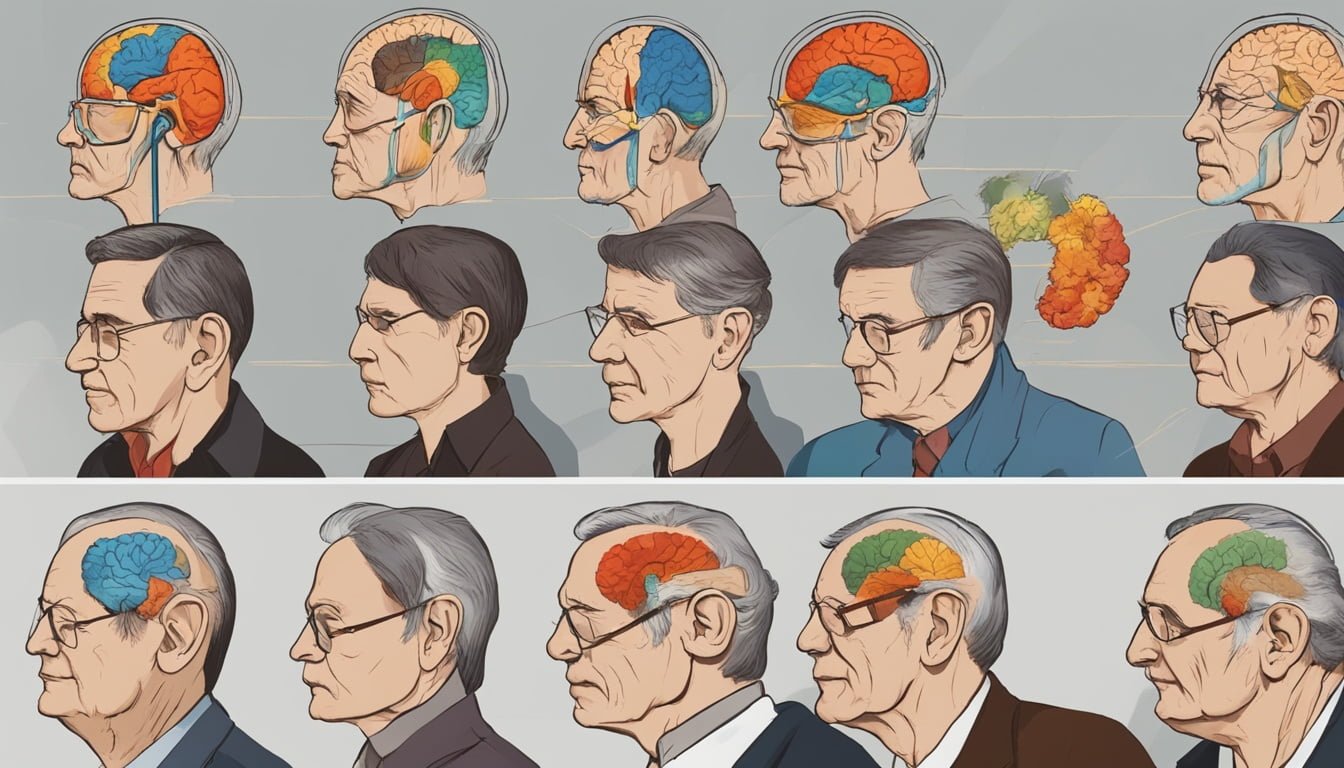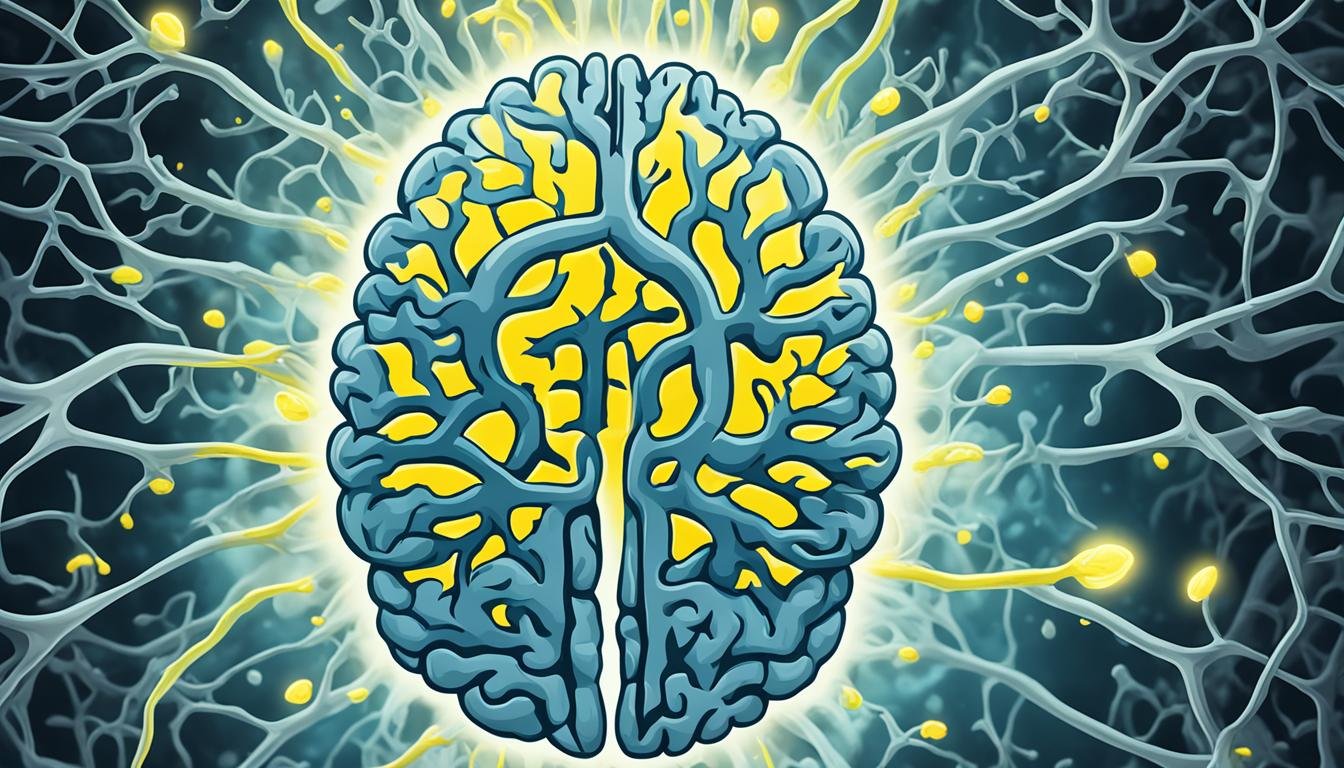Understanding the symptoms of dementia early on can make a big difference in managing the condition and improving quality of life.
In this blog, we will explore the many symptoms of dementia, how they show up, how they differ from normal aging, and when you should seek medical help. As a US-trained neurologist, I will guide you through the medical facts with clarity and care.
Table of Contents
ToggleWhat is Dementia?
Dementia is not a single disease. It is a group of symptoms caused by disorders affecting the brain. These symptoms interfere with memory, thinking, behavior, and the ability to carry out everyday tasks.
Common types include:
- Alzheimer’s disease (most common)
- Vascular dementia (caused by stroke or blood flow problems)
- Lewy body dementia (linked with movement issues and hallucinations)
- Frontotemporal dementia (affects personality and language first)
These types differ in their progression and affected brain regions, but the core symptoms of dementia remain similar.
Symptoms of Dementia
Not all memory slips are just a “senior moment.” Sometimes, they are warning signs of something deeper. Understanding the symptoms of dementia is the first step toward getting timely help.
Below, we break down the key indicators—each one explained clearly so you know what to look for.
1. Memory Loss That Affects Daily Life
Forgetting names occasionally is normal. But dementia-related memory loss is persistent and disrupts everyday activities.
People may forget important dates or events.
They might ask for the same information repeatedly.
They often rely heavily on notes or family members to remember things they used to manage on their own.
This kind of memory loss is often one of the earliest and most noticeable symptoms of dementia.
2. Difficulty Planning or Solving Problems
A person with dementia might find it hard to follow familiar routines, such as:
Making a grocery list
Following a recipe
Paying monthly bills
Even simple tasks may seem overwhelming because the brain struggles to organize thoughts and manage sequences. This symptom is common in Alzheimer’s and vascular dementia.

3. Trouble with Familiar Tasks at Home or Work
Everyday tasks suddenly feel confusing.
They may forget how to operate the microwave or TV remote.
In the workplace, they might struggle to perform tasks they once did easily.
The problem isn’t physical, it’s the brain’s declining ability to process steps and retain procedures.
4. Confusion About Time or Place
Dementia affects a person’s sense of orientation.
They may lose track of dates, seasons, or the passage of time.
Sometimes, they may forget where they are or how they got there even in familiar environments.
This type of confusion can grow over time and may lead to wandering or unsafe behavior.

5. Problems Speaking or Writing Clearly
Communication becomes difficult:
They pause mid-sentence, unsure how to continue.
They repeat themselves or struggle to find common words.
Writing may also show strange errors or changes in style.
These changes can cause frustration and make social interactions difficult.
6. Misplacing Items and Losing the Ability to Retrace Steps
This is not just about forgetting where the keys are.
People place items in odd places like putting the phone in the freezer.
They’re unable to retrace steps to find the lost item.
They may accuse others of stealing when they can’t find something.
This symptom is emotionally upsetting for both the person and their loved ones.
7. Poor Judgment and Decision-Making
Dementia can impact reasoning:
A person may give large amounts of money to telemarketers.
They might dress inappropriately for the weather like wearing a winter coat in summer.
Personal hygiene might decline as they forget or ignore routine care.
This symptom can put people at risk if not addressed early.
8. Withdrawal from Work or Social Activities
Someone who used to be outgoing might suddenly become quiet or avoid events.
They may give up hobbies, social gatherings, or work commitments.
They may feel embarrassed by the changes they’re experiencing and isolate themselves.
Social withdrawal can worsen the condition by reducing brain stimulation.
9. Changes in Mood and Personality
Dementia affects more than memory, it changes who a person is:
They may become confused, suspicious, depressed, fearful, or anxious.
They can become easily upset, especially when out of their comfort zone.
This is one of the most emotionally challenging symptoms of dementia, both for the individual and those around them.
Mid-to-Late Stage Symptoms of Dementia You Must Not Miss
As dementia progresses, the challenges become more severe and interfere deeply with daily life. Recognizing the symptoms of dementia in these stages helps families prepare and get the right medical help on time.
Let’s explore the advanced symptoms in detail.
10. Severe Short-Term and Long-Term Memory Loss
The memory loss becomes much more intense than in early stages.
People may forget the names of close family members.
They may not recall important parts of their life history.
New information is quickly lost, even if it’s repeated several times.
This decline in short-term memory and long-term recall can feel like the person is slowly slipping away from reality.
11. Inability to Recognize Loved Ones or Familiar Places
Familiar faces start becoming strangers.
A mother may not recognize her daughter.
They may believe their current home is not where they live.
People may insist on “going home,” even when they are home.
This is one of the most heartbreaking symptoms of dementia, deeply affecting relationships and emotional health.
12. Disorientation and Wandering
As orientation worsens, people with dementia may leave home and get lost—even in their own neighborhood.
They might not remember why they left or how to return.
Wandering can happen at any time, often without warning.
It increases the risk of injury, especially among the elderly.
This symptom requires careful supervision and sometimes GPS tracking devices for safety.
13. Loss of Motor Skills and Coordination
Not only thinking but also movement begins to change.
They may shuffle while walking, lose balance easily, or fall frequently.
Fine motor tasks like buttoning a shirt or using utensils become difficult.
Coordination issues may cause them to drop objects or spill drinks.
This physical decline often leads to increased dependence on caregivers.
14. Hallucinations and Delusions
Some forms of dementia, especially Lewy body dementia, cause changes in perception.
People may see or hear things that aren’t there.
They may believe someone is trying to hurt them.
Roughly 60% of people with Lewy body dementia experience psychotic symptoms.
These behavioral symptoms of dementia can be disturbing and sometimes dangerous if not managed properly.
Behavioral and Psychological Symptoms of Dementia (BPSD)
Let’s talk about a set of symptoms that most families struggle with—changes in behavior and mood. Up to 90% of people with dementia will show at least one of these issues.
15. Emotional and Behavioral Disturbances
These symptoms can appear at any stage and vary from person to person.
Aggression: Verbal or physical outbursts, especially when feeling threatened or confused.
Agitation: Pacing, fidgeting, or constant restlessness.
Depression: Loss of interest in everything, sleep issues, poor appetite.
Apathy: No motivation to do even basic tasks like eating or bathing.
Paranoia: Believing others are stealing or plotting against them.
These cognitive decline symptoms are sometimes mistaken for mental illness, but they’re part of dementia.
16. Sundowning: A Common but Misunderstood Symptom
Have you noticed someone getting more confused or upset late in the day? That’s sundowning.
Increased confusion, anxiety, or aggression after sunset.
May involve yelling, wandering, or hallucinations at night.
Causes may include fatigue, hormonal imbalances, or changes in brain chemistry.
Understanding sundowning can help families schedule calming activities and reduce night-time stress.
Dementia Symptoms vs. Normal Aging: Know the Difference
Not every memory lapse is a cause for panic. But knowing when something feels “off” is crucial. Here’s a side-by-side comparison to help you separate normal aging from the actual symptoms of dementia.
| Normal Aging | Symptoms of Dementia (Abnormal) |
|---|---|
| Occasionally forget names but remember later | Frequently forget names and don’t recall even with hints |
| Misplace things from time to time | Place items in strange locations, like putting a wallet in the fridge |
| Lose focus but regain it quickly | Struggle with focus, follow-through, and finishing simple tasks |
| Sometimes feel confused about the day | Get completely disoriented — don’t know where they are or what year it is |
| Mood changes due to stress | Sudden personality changes: paranoia, anger, or depression |
| Need help with new technology | Forget how to use familiar tools or how to operate the TV or phone |
| May pause to find a word | Forget common words, replace them with unrelated terms or gibberish |
| Can still care for self | Start neglecting basic hygiene, nutrition, and grooming |
Up next, let’s talk about when to act—and how you can detect dementia early through professional evaluation.
Expert Advice from Dr. Chandril Chugh
Understanding the symptoms of dementia can help reduce fear and encourage early help. If you notice signs in yourself or a loved one, don’t wait, consult a neurologist for dementia treatment. Time matters in brain health.
Dr. Chandril Chugh is a US-trained, board-certified neurologist. He specializes in treating complex brain disorders, including memory loss, cognitive decline symptoms, and neurodegenerative disorders. Book a consultation now to understand your risks and treatment options.
FAQ
What are the signs and symptoms of dementia?
Dementia presents with a variety of signs and symptoms, including memory loss, difficulty with language and communication, confusion, and impaired judgment. Other common symptoms include changes in mood, personality, and behavior. It is important to note that these symptoms may vary depending on the type and stage of dementia.
How does dementia affect cognitive abilities?
Dementia can cause a decline in cognitive abilities, such as memory, thinking, and reasoning skills. Individuals may struggle with recalling recent events, learning new information, or solving problems. As the disease progresses, these cognitive impairments may become more severe.
What behavioral changes can occur in individuals with dementia?
Dementia can lead to significant behavioral changes. Common symptoms include mood swings, agitation, irritability, restlessness, and social withdrawal. Individuals may also experience hallucinations or delusions. These behavioral changes can be challenging for both the person with dementia and their caregivers.
How does dementia impact communication?
Communication difficulties are a hallmark of dementia. People with dementia may have trouble finding the right words, expressing themselves clearly, or understanding spoken language. They may become frustrated or resort to nonverbal communication methods. Patience, understanding, and alternative communication strategies can help improve communication with individuals with dementia.
What physical symptoms are associated with dementia?
Dementia can manifest in various physical symptoms. Some individuals may experience mobility problems, such as difficulty walking or maintaining balance. Others may have a change in appetite, weight loss, or sleep disturbances. It is important to monitor and address these physical symptoms to ensure the overall well-being of individuals with dementia.
How does dementia affect daily functioning?
Dementia significantly impairs a person’s ability to carry out daily activities. Simple tasks like dressing, bathing, or preparing meals may become challenging or impossible without assistance. Additionally, individuals may have difficulty managing finances, keeping track of appointments, or maintaining personal relationships. Support and adaptations can help individuals with dementia maintain a level of independence and quality of life.

This article is medically reviewed by Dr. Chandril Chugh, Board-Certified Neurologist, providing expert insights and reliable health information.
→ Book a consultation to discover which remedies suit your needs best.
About Author | Instagram | YouTube | Linkedin




